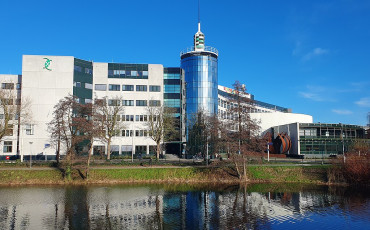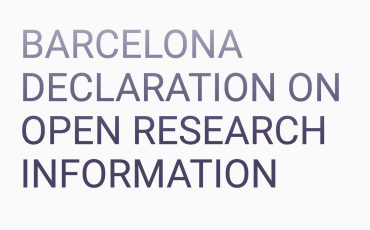Currently research infrastructure faces several challenges: political instability that may harm important open databases such as NIH’s PubMed and Nasa’s ADS; financial cuts in The Netherlands that may mean we will no longer be able to afford all of our content subscriptions or publish deals; and technological changes that require more access to open fulltext for training AI models. The need for sovereignty over our own data and metadata becomes ever more clear. DURF envisions building a strong open infrastructure with our repositories and current research information systems (CRIS) to strengthen the (inter)national infrastructure.
Even with a clear vision of our goals, the proposal did not come easy. Why was it so hard to write? While there is still a lot of progress to be made, we have been a trustworthy part of the international infrastructure for a very long time (DAREnet was initiated in 2003) and have amassed many ideas on how to improve. To face the current challenges, we need to significantly increase our efforts and improve our infrastructure: make it resilient and become full data sovereigns. To ensure the proliferation and visibility of the Dutch research output, these improvements have to be made together, with a joint vision, best practice exchanges and agreements with monitoring setup to guard our basic principles.
To reach our goals we have divided the total work package into six concrete themes:
- Governance of the Federation and Netherlands Research Portal -to create a sustainable system, we need a governance framework for the Dutch federated research information ecosystem including all parties: from the Dutch repositories and CRIS systems to KB National Library for its e-depot and OpenAIRE for the Netherlands Research Portal.
- Metadata quality improvement – we want our metadata to be suitable for strategic and research purposes and helpful in improving the data in a diversity of global indexes. In this package we will create a specific Dutch application profile for OpenAire (comparable to NL_DIDL specifications), enrich CRIS metadata with the OpenAIRE Broker and focus on the addition of identifiers such as ROR, Orcid and DOI.
- Fulltext capture enhancement – repositories have the unique advantage that they can deliver additional forms of Open Access, from author’s versions to fulltext under Taverne, and integrate them seamlessly within the research infrastructure via Unpaywall (integrated in most commercial databases) and via indexes such as Google Scholar. However, providing fulltext for gold Open Access publications is just as important and becomes more important when we look at small publishers and experiments with new forms of publications. Not only do we provide an alternative preservation route, by staying sovereign we can stimulate better (fulltext) indexing and research on our publications where publishers may raise obstacles. In this theme we will look at different methods and platforms to increase our fulltext coverage.
- KB National Library e-Depot Archiving – the national library is a safeguard against failure of our repositories and provides additional value to the federation, but the current way the e-depot and national identifier (URN:NBN) work, is dependent upon an out-of-date harvester. This theme takes care of implementing a modern route via OpenAire to ensure and monitor our preservation.
- Distribution and discovery optimization – the current open infrastructure is quite diverse in its nodes: indexers and harvesters. DURF is not focusing solely on OpenAIRE, but also on sources such as OpenAlex, WikiData and Google Scholar. By sending our enriched data (see theme 2) to these indexes, we can increase the visibility of the Dutch research output. In this theme we will focus on creating dissemination routes for these indexes and ensuring that for example DOI’s are in place to enable pickup of our contents in OpenAlex.
- Portal development and enhancement – the Netherlands Research Portal is built on top of OpenAIRE and thus has a wealth of options. However, there are also still some features missing that were previously available in Narcis, such as the expert finder. In this theme a Dutch content board will be setup and DURF will work together with OpenAIRE to improve the portal functionality.
The DURF team is confident that this funding will allow us to improve the international open infrastructure ecosystem in a feasible and durable way, with The Netherlands as example for many other national infrastructures. We DARE to be DURF!
Photo: 'Building Bridges de Lorenzo Quinn (Arsenal de Venise)' by Jean-Pierre Dalbéra



0 Praat mee